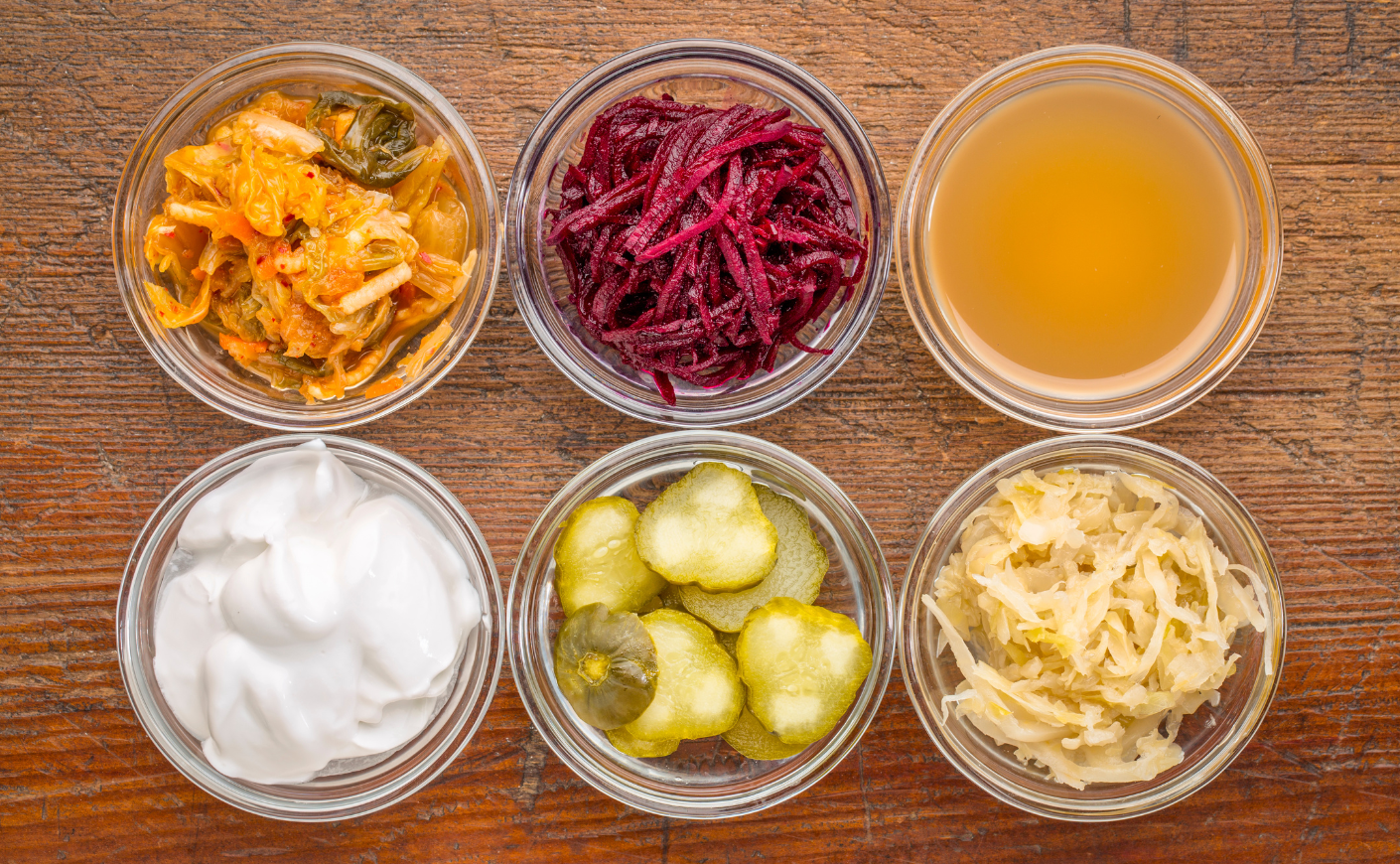After Maria Branyas Morera died last year at 117, researchers studied how the supercentenarian managed to live such a long, healthy life.
What they found is that in addition to her Mediterranean diet and her genes, which shielded her from many chronic diseases, Morera had an unusual fondness for yogurt. She indulged in three servings per day — and it turns out that may have been a key to her longevity.
When scientists examined her microbiome, they found that she had an abundance of Bifidobacterium, beneficial bacteria that's linked to low levels of inflammation, which had cultivated in her gut through her yogurt habit.
Experts are beginning to recognize that yogurt and other forms of fermented food do carry some powerful benefits, even though they may not guarantee that you live past 100. Beyond helping to tame inflammation, these foods keep the digestive system running smoothly and can even boost immunity, says Leigh Frame, PhD, a professor at George Washington School of Medicine, who studies the microbiome and nutrition.
“The gut’s central to overall health,” she says, which is why there’s such a growing interest in this funky fare. According to the Wall Street Journal, sales of fermented foods have grown about 27 percent over the past four years.
We took a closer look at how yogurt, sauerkraut, certain cheeses, and the like support gut health, what to watch out for as you incorporate it into your diet, and more.
Are fermented foods good for you?
Fermentation is a way of preserving food that dates back thousands of years. Dr. Frame describes the process as “essentially controlled spoilage,” in which microbes like bacteria and yeast convert sugar into ethanol (as is the case in wine and beer) or lactic acid (like in yogurt and sauerkraut), resulting in a product with a “much longer shelf life” — and that's also teeming with good bacteria.
Emerging research suggests that these foods may help lower body-wide inflammation by fortifying the gut wall, which, when compromised, can allow potentially harmful pathogens to spill into the bloodstream. If that lining’s breached, it can affect your digestion and immunity and also activate inflammation, Dr. Frame says.
One small Stanford study found that people who regularly ate yogurt, kefir, and other fermented goods over 10 weeks showed decreased levels in 19 inflammatory compounds, including interleukin 6, which is commonly elevated in people with type 2 diabetes and rheumatoid arthritis.
The subjects also significantly boosted the diversity within their gut microbiomes — meaning they had lots of different types of good bugs living within them. Research indicates that a healthy mix of microbes is important for overall health.
Tips for adding more fermented food to your diet
There are plenty of tasty options out there for those looking to eat more fermented fare: yogurt, kimchi, sauerkraut, kefir, certain cheeses and pickles, and — for the more adventurous — natto, a pungent Japanese soybean dish that most Westerners would consider an acquired taste.
There are couple things you should look out for, too, Dr. Frame tells us. For one, double check that what you’re picking up at the grocery store has really gone through the fermentation process. Some pickles and sauerkraut, for instance, are just made with vinegar and haven’t been lacto-fermented, she explains. And when it comes to yogurt, you want to look for products that contain live active cultures, “so you get that probiotic benefit,” she says.
You also want to be discerning about how products are being processed and what’s being added to them. Some brands of kombucha, a fermented tea, can contain lots of added sugar, while kimchi, a Korean cabbage dish, is often made with a lot of salt. (Although, Dr. Frame says the latter’s less of a problem because it’s meant to be consumed as a side dish.)
If you’re new to the world of fermented foods, you can rest assured that for most people it’s actually easier to digest than typical fare. But Dr. Frame says certain groups, like people with IBS, may be a bit more sensitive, and they should watch the amount they consume. “As with anything when you’re changing your diet, start slow and gradually increase your intake,” she says.
So how much of the stuff should you be eating for gut health?
“There’s some indication that five or six [daily] servings is ideal, but that’s kind of a lot,” Dr. Frame says, even for her. Fortunately, you can still derive some of the benefits by aiming for a single serving — that can be just a couple scoops of yogurt, or even just cooking with miso paste.
“My outlook is: Let’s not let perfection be the enemy to the good,” she says.









